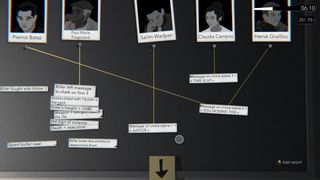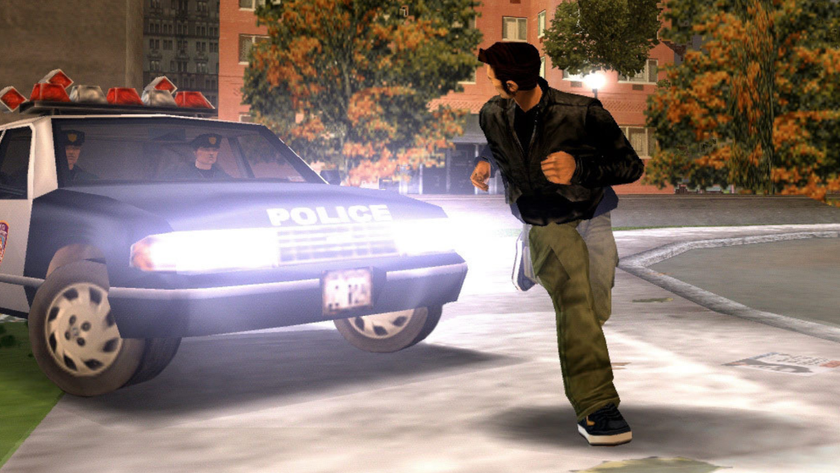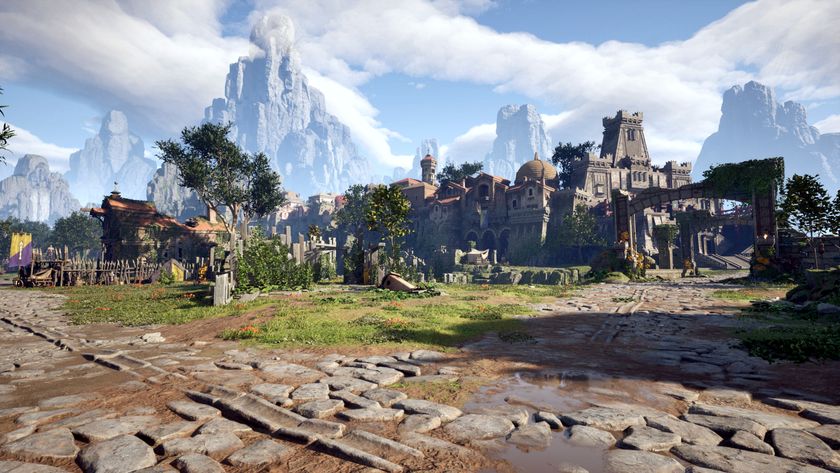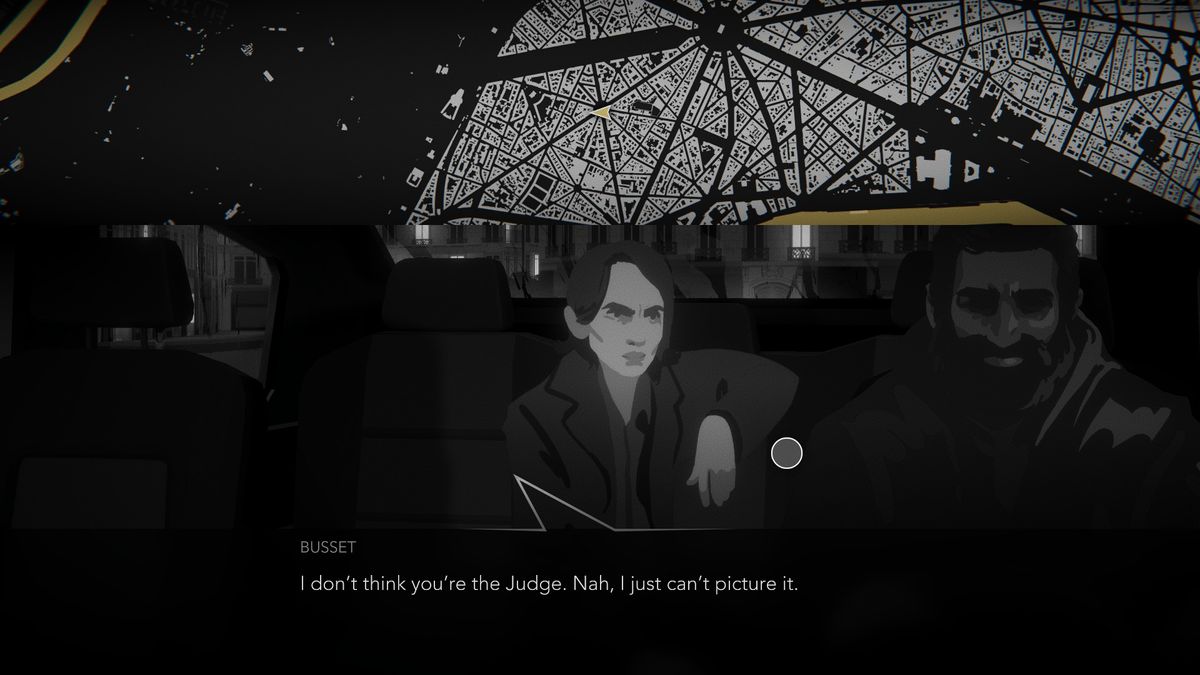Our Verdict
Haphazard gameplay and varying narrative quality put a damper on Night Call's strong mood and hints of brilliance.
PC Gamer's got your back
What is it? A narrative noir mystery set in a taxi.
Developer: Monkey Moon/BlackMuffin Studio
Publisher: Raw Fury
Reviewed on: Core i5-8400, GTX 1060, 16 GB RAM
Multiplayer? No
Link: Official site
Being in a taxi can be a strangely intimate experience for both driver and passenger, and Night Call seeks to explore that relationship. You play a Parisian driver who has all kinds of conversations with his passengers, ranging from "it's cold today, huh?" to intense philosophical debate. However, you're not just making conversation to pass the time. An encounter with a serial killer leaves you scarred, but also implicated, thanks to your murky history. In order to prove you're a victim, not the perp, you need to successfully identify the real criminal.
This set-up is just as film noir-inspired as Night Call's moodily gorgeous visual design, the implication here being that the police aren't as interested in the truth as they are in having a scapegoat. Unless you make a valuable contribution, you're going down. It's an idea that doesn't gel well with an otherwise very modern tone. You have no choice, and so you use your night job as a way to make progress with your new detective side hustle—choosing a waiting passenger on a map of Paris and probing them for information as you take them where they want to go.
Passengers might drop clues—gossip or a location worth checking out—based on how the conversation is going and whether they actually know anything. After your shift you then spend some time going through your clues and assigning them to a suspect until you can identify the murderer with certainty.

Night Call feels like doing a puzzle without having seen the picture on the box first.
I'll be honest, throughout several runs I haven't guessed correctly once, and it was guesswork rather than an investigation. Night Call comes with three different case types, one in which the suspects share a possible motive, one where their connections to the murders are more arbitrary, and one called 'random' that feels no more or less so than the others. All modes play the same. In each, the killer is randomly picked from five possible characters.
I'm certain it would help if I knew more about the killer than single-sentence descriptions of his approach, but as it is, Night Call feels like doing a puzzle without having seen the picture on the box first. I can't tell which evidence is relevant to the case, and your passengers aren't terribly useful either. Refusing a passenger is largely pointless, unless you're worried you're going to run out of petrol by the time you reach their destination. You don't know what you're looking for, so you don't know if a conversation with a specific passenger will lead you to it, so why refuse them?
At least you can see the passengers nearby and make a pick based on who looks interesting, or if someone you suspect is among those looking for a ride. I end up picking based on these attributes since I don't know who I'm looking for, and the clues passengers give seem to be dispensed at random. Money management, while mostly automatic, is another element designed to make Night Call more difficult, but more missing info, such as how much your ride will be worth before you accept it, means there's little opportunity for actual management.
Thankfully the whole murder plot mostly seems to exist to give Night Call an end state, and doesn't detract from the real meat of the game, which is having conversations with an eclectic cast of passengers. While the descriptive text is always wonderful, the exchanges can be groan-worthy—the game sometimes falls short of the poignancy it's going for. The driver never becomes much of a character of his own, he's an avatar for your conversational choices, but a taciturn one This conflict hampers the game's ability to give meaningful comment on the issues that your passengers discuss.
Midnight in Paris

One of your passengers is inferred to be an immigrant who's just had a run-in with the police, but he turns out to be deeply sensitive lover of literature who bonds with the driver over shared experiences with racism. “People of colour can be smart people with diverse interests, too, even the scary-looking ones” isn't a point worth making in 2019, as necessary as it may seem. A policeman is scared of coming out to his colleagues because he works in a traditionally hyper-masculine space. The old racist says “I'm not a racist, honest.”
Maybe I just have very little patience for such characters because simply depicting them just reflects my own experience without adding anything meaningful. For someone unfamiliar with these instances, their inclusion may seem bold and provocative. Shining a light on other people's lived experiences is worthwhile endeavour in itself, but here I'm playing a mostly silent, mostly calm and pleasant soundboard for people.
There are a few passengers who fit Night Call's mood very well, like the maudlin Japanese businessman who you are supposed to communicate with without speaking his language, or Santa, who forgot where he parked his sleigh. With 70 characters, there's a lot of variety, but unfortunately there's also a lot of repetition between the procedurally generated runs. I commend Night Call for having so many stories, but they are told in flawed structure.
Haphazard gameplay and varying narrative quality put a damper on Night Call's strong mood and hints of brilliance.

Like a Dragon: Pirate Yakuza in Hawaii review

GTA 3 almost had us obeying traffic laws before Rockstar yanked it out, and if you're wondering if GTA 6 will bring it back: 'I'm sure they'll realize it's a bad idea'

Having spent many hours testing Avowed I've found these three top tips are the best way to boost the game's performance

